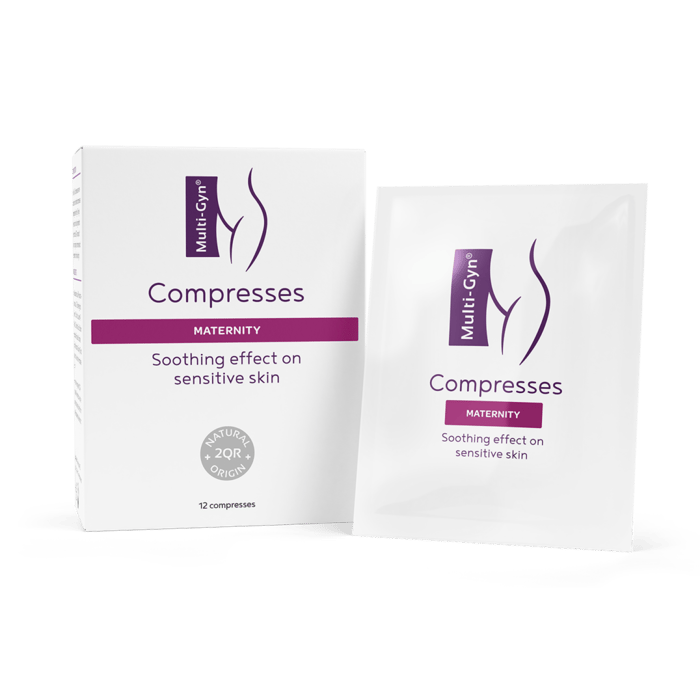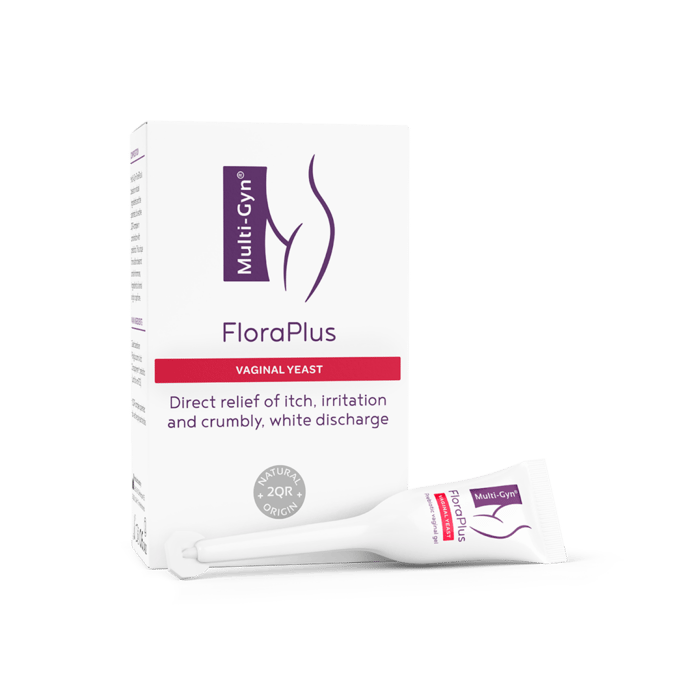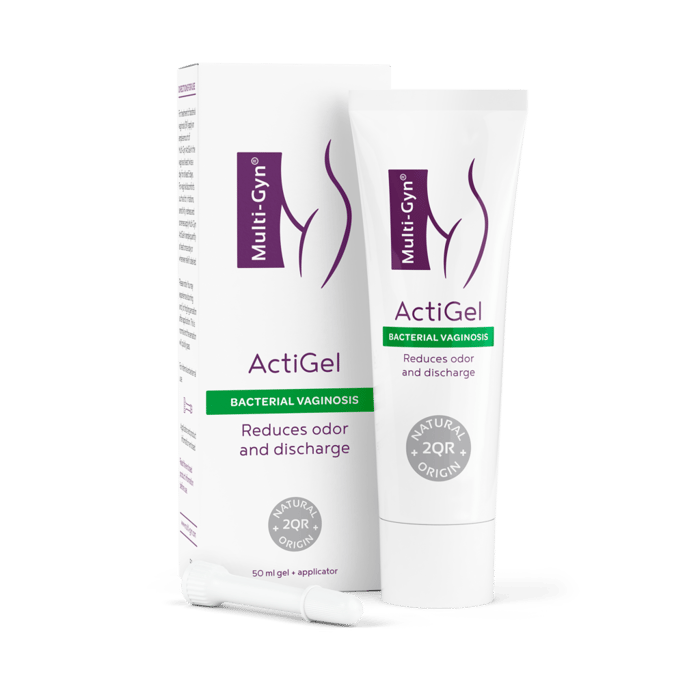Vaginal Dryness
Vaginal dryness is when a vagina doesn’t produce as much lubrication as usual. It can lead to discomfort, pain during sexual intercourse, and irritation which ranges in severity from person to person. If you experience frequent or severe vaginal dryness, you might not be able to have sex like you used to. It can impact your sexual relationships, harming your overall quality of life.
The leading cause of vaginal dryness is reduced oestrogen levels, which happens naturally as a woman gets older and goes through menopause. However, vaginal dryness can affect a woman of any age. It is important to understand the symptoms, causes, and treatment options for vaginal dryness so that you can experience a full and healthy life – both in the bedroom and out of it.
Read on to discover:
- The symptoms of vaginal dryness
- The causes of vaginal dryness
- Vaginal dryness treatment
- How to prevent vaginal dryness
- The impact of vaginal dryness
- When to see a doctor for vaginal dryness
- Vaginal dryness FAQs
Vaginal Dryness – Symptoms
Knowing when there is a problem is the first step to treating it. These are the most common signs of vaginal dryness:
- Discomfort or Pain During Sexual Intercourse
Discomfort or pain during sex can be due to several reasons, but vaginal dryness is a potential cause. If your vagina is not adequately lubricated, penetration can be uncomfortable, difficult, or even impossible.
- Frequent UTIs
If you experience frequent UTIs, that might be a sign that you have vaginal dryness. That is because your vaginal tissue becomes thinner with dryness, leading to more chance of irritation and infection. Common UTI symptoms include burning and frequent urination.
- Soreness around the Vagina
Vaginal dryness and soreness will often feel painful – especially after sex. This is due to the lack of lubrication that makes sex comfortable.
- Itchiness
Without treatment, vaginal dryness may lead to irritation and even infection. If you experience itchiness and vaginal dryness, it is possible that you may have a yeast infection and need a medication like Gyno Pevaryl to clear it up. If symptoms persist, see your GP to discover the underlying causes.
- Light Bleeding After Sexual Intercourse
Some women experience light bleeding during ovulation, which isn’t usually something to worry about. Light bleeding after sexual intercourse, though, might indicate that something isn’t quite right. One of the potential causes is vaginal dryness causing too much friction during sex.
- Little Vaginal Discharge
A healthy vagina produces discharge every day – some more than others. If you experience little to no vaginal discharge, that could be a sign that you have vaginal dryness.
If you experience any of these symptoms, visit your doctor to understand the underlying issue.

Vaginal Dryness – Causes
Vaginal dryness affects women of any age for a variety of reasons. Here are the most common vaginal dryness causes:
- Unbalanced Hormones
When oestrogen levels get too low, the vagina doesn’t produce as much natural lubrication. That is why vaginal dryness is so common during menopause, as women don’t produce as much oestrogen as they did when they were fertile. It’s important to remember, though, that low estrogen levels can affect women of any age for various reasons. In fact, around 17% of women between the ages of 18-50 experience dryness during sexual intercourse.
- Medications
Certain medications can cause vaginal dryness, including beta-blockers, antihistamines, and some cancer drugs. If you experience vaginal dryness after taking a new medication, speak to your doctor about it.
- Breastfeeding
Breastfeeding and vaginal dryness often go hand in hand due to the natural change in hormones during this time. Don’t worry – it is not a long-term symptom; your vagina should return to normal once you stop breastfeeding.
- Diabetes
High blood sugar levels can damage the vagina’s blood vessels, leading to less lubrication. If you have diabetes and experience vaginal dryness, talk to your doctor about treatment options.
- Birth Control
Certain birth control medications can cause vaginal dryness. If you suspect your birth control is causing vaginal dryness symptoms, speak to your doctor – they may prescribe a different birth control with fewer unpleasant side effects.
- Lack of Foreplay
Vaginal dryness during sex could be due to a lack of foreplay. If you find sex uncomfortable due to vaginal dryness, try spending more time doing foreplay before penetrative sex.
- Yeast Infections
Yeast infections sometimes have the symptom of dryness, alongside itching, soreness, and clumpy discharge. You will need to use an antifungal treatment like Gyno Pevaryl to kill the yeast infection.
- Skin Conditions
If you have dry vaginal skin, the cause may be a skin condition like dermatitis. Speak to your doctor if your skin is dry, itchy, or flaky around your vaginal area.
Vaginal Dryness – Treatment
Vaginal dryness is a common symptom that many women experience at some point in their lives. Fortunately, there are plenty of options for treating vaginal dryness, including:
- Topical Oestrogen Therapy
If vaginal dryness is caused by lowered oestrogen levels, topical oestrogen therapy can be prescribed. It comes in the form of rings, tablets, and creams. Creams are placed on the vagina, while tablets and pessaries are put inside the vagina to release oestrogen. These treatments often help with dryness during intercourse menopause.
- Gyno Pevaryl
If vaginal dryness is caused by a yeast infection, Gyno Pevaryl can be used for 14 days to treat the infection. Once the infection has gone, your vaginal discharge should return to normal.
- Vaginal Moisturiser
For short-term relief, a vaginal moisturiser can be used to boost lubrication. It can be helpful before sex or during the day to relieve any discomfort. Apply to the vagina when necessary.
- Ospemifene
Ospemifene is a non-hormonal treatment that is often prescribed instead of oestrogen products. It is specifically for treating vaginal dryness and painful sexual intercourse. Your doctor can prescribe ospemifene, so speak to them about this option.
- Water-based Lubricants
Water-based lubricants can be used before and during penetrative sex to make the experience more comfortable. Apply directly to the vagina when needed.
Vaginal Dryness – Prevention
There are things you can do to prevent vaginal dryness from occurring, helping you to avoid discomfort and enjoy a healthy and fulfilled sex life.
- Avoid Douches
Some women use douches to clean inside the vagina, but this is unnecessary and can cause irritation and dryness. The vagina naturally cleans itself, so only focus on the outside (the vulva) when washing.
- Avoid Scented Products
Much like douches, scented products can irritate the vagina. Instead, use non-scented products on the area to minimise irritation and prevent vaginal dryness.
- Foreplay Before Penetrative Sex
If you find that you experience dryness during sex, it could be because of a lack of foreplay. Spend more time performing foreplay to lubricate the area naturally.

- Keep an Eye on Your Vagina’s Health
Knowing your vagina and when it’s showing uncomfortable or unusual symptoms is important. See your gynaecologist regularly and take note of any changes to keep your vagina as healthy as possible.
The Impact of Vaginal Dryness
The impact of vaginal dryness varies from person to person. Some women might only encounter mild discomfort, whereas, for others, it might take over their lives, causing lots of pain and stress.
- Pain and Discomfort
A dry vagina can cause irritation, discomfort, and pain – especially during sex. This can impact your quality of life, stopping you from focusing during the day and getting in the way of certain activities.
- An Impacted Sex Life
The impact of vaginal dryness is not just about the physical symptoms – it can also affect your sex life and, in turn, your sexual relationships. Vaginal dryness can make penetrative sex uncomfortable and even unbearable. When this happens, couples and sexually active individuals can struggle to cope, especially if they previously had a healthy and frequent sex life.
If vaginal dryness is impacting your sex life, it’s important to figure out the cause and start treating it. Both doctors and therapists can help with that. You can also see a couple’s counsellor if vaginal dryness is causing a rift in your relationship.
When to See a Doctor
For vaginal dryness, you should see a doctor when:
- You experience other symptoms like itching and burning
- You don’t know the cause
- It is impacting your life and relationships
- You’re experiencing chronic vaginal dryness
Some women put off going to a doctor because they feel embarrassed. Remember that doctors are medically trained and handle symptoms like this daily. If you would prefer, you can always ask for a female doctor.
In Summary
Vaginal dryness can affect any woman of any age – but it tends to happen more regularly after menopause. If you experience vaginal dryness, it’s important to speak with your doctor to understand the root cause and treat it properly.
Frequently asked questions
Why Is My Vagina Dry?
Vaginal dryness can be caused by menopause, breastfeeding, contraception medication, cancer treatments, perfumes, soaps, douches, and underlying health conditions such as diabetes.
How Do I Get Rid of Vaginal Dryness?
There are plenty of treatment options for vaginal dryness, including creams like Gyno Pevaryl, medications, and therapies. Speak to your doctor about treating vaginal dryness.
What Does Vaginal Dryness Feel Like?
A dry vagina might feel painful, swollen, and irritated. You might also struggle to put anything (like sex toys, tampons, or a penis) into the vagina.
Why Do I Get Dry After I Come?
Experiencing a dry vagina after orgasm might be a sign of an underlying issue like low oestrogen levels or stress.
Can I Have Sex with a Dry Vagina?
Penetrative sex with vaginal dryness can be uncomfortable. There are ways to still have sex, though – water-based, unscented lubricants can make entering the vagina easier.





